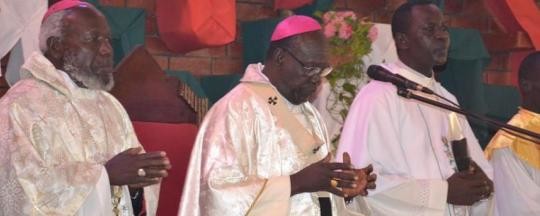A politician from Equatoria region in South Sudan has dismissed social media reports that the people of Equatoria have not played a substantive role in stop the country’s civil war.
Martin Abe Aligo, secretary general of the national alliance of eighteen south Sudanese opposition political parties, said the people of Equatoria exhausted their efforts to contain the conflict but the two antagonists in the war resisted.
“These reports [that Equatorians did not help stop the war] are misleading and are unacceptable. The people of Equatoria with their bare hands, with no guns, and no armed recruits tried the best they could to avert the conflict when it started showing its ugly signs before spiraling out of control in December 2013,” Abe said.
Abe was reacting to a debate on social media in which both opposition and government supporters said the war would have claimed fewer lives had the people of Equatoria taken a more decisive stand from the beginning.
“The elders and the bishops met both the president and the group of Riek Machar and Pagan Amum and pleaded them to resolve their internal differences amicably but they refused to listen and the result of their actions was the war which the country and the people have witnessed,” Abe said.
“Clergies, Bishops, and church pastors in various dominations and mosques preached against war. They opposed war a way to resolve political differences,” he added. “The church and civil society leaders called for calm, and ordinary people called for peaceful resolutions to the conflict. Did anybody listen to all these pleas? No. They did not because the parties were determined to fight to achieve their objectives.”
Photo: South Sudanese Bishops Paride Taban (l) and Paolino Lokukdu Loro (r).




